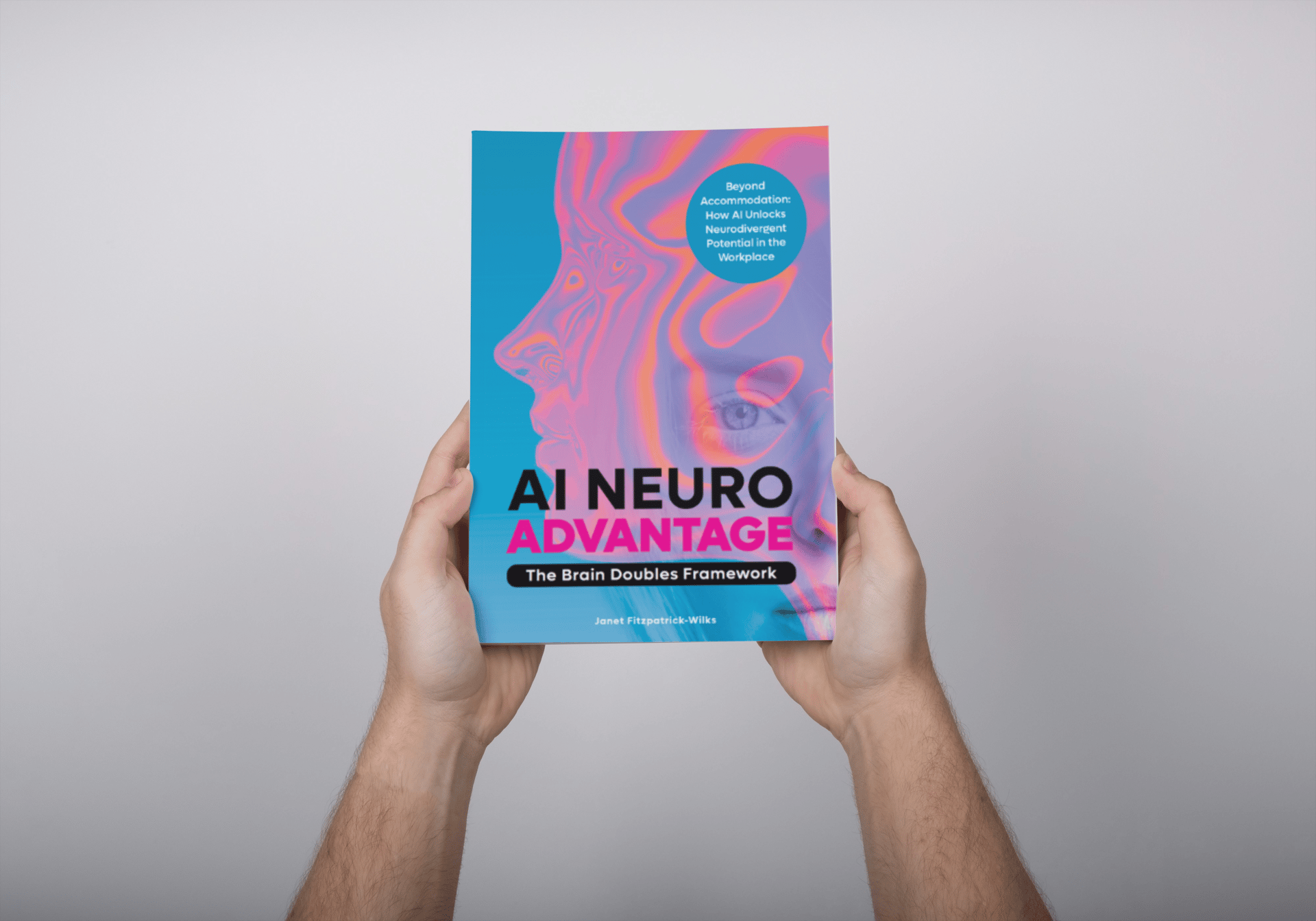- Brain Doubles Newsletter
- Posts
- 💪It Ain't Heavy, It's My Partner
💪It Ain't Heavy, It's My Partner
Two Essential Mindset Shifts That Allow You to Master AI


Hello,
There's real anxiety around AI right now. People worry they won't keep up, won't master it, might get outpaced by the "experts," and will be left behind.
I won't sugar coat it. Yes this might happen. But here's what I tell my clients: if that's all you're seeing, you're looking at AI through the wrong lens.
What if AI isn't another burden, but a partner ready to lift a heavy load from your shoulders?
What if it turns out to be one of the best (non-human) things to happen to your work life?
What if it actually helps you reach your potential instead of limiting it?
Maybe it represents liberation, not liability.
But you'll only realize this with a significant shift in perspective. To help reframe your relationship with AI, here are a couple of different ways to think about it:
1. AI as a New Kind of “Digital Species”
Stop thinking of AI as just another tool.
Mustafa Suleyman from DeepMind says our current metaphors hold us back. "Tool" doesn't capture what's happening here. These systems adapt and respond in ways calculators don't.
He suggests viewing AI as a new form of intelligence—not human intelligence, or even biological intelligence, but something that operates differently from how our minds work. As he puts it:
"AIs are more dynamic, more ambiguous, more integrated, and more emergent than mere tools... We should start to think about them as we might a new kind of digital species."
Look, you’ll still see me using the ‘tools’ label for simplicity's sake, but AI is so much more.
2. Your Personal Team of “Big Brains”
Throughout my career, I relied on talented teams to help turn my concepts into reality, but even the most flexible teams couldn't match how my ADHD synapses work.
Bursting at the seams with ideas, bursts of inspiration, big-picture strategies, and half-formed concepts, my brain was on 24/7.
It was neither sustainable nor altogether fair to expect team members to interpret and translate my mental processes into actionable outcomes.
Yet, today, one Generative AI LLM partner can fill the roles of an entire team:
It can be a thought partner, translating ideas into visible value; a structure provider, organizing scattered information into frameworks and project plans; a world-class researcher who collects and synthesizes vast amounts of information; an analyst, editor, coder, communicator, marketer, creator, and so much more.
This is one reason I disagree with the “treat AI as an intern” trope. Are you kidding me? I've never met, nor will I ever, meet an intern with the extraordinary capabilities of this team of giant brains.
Don’t diminish the AI opportunity by underestimating it.
What Happens When This Clicks?
The value you get from AI is often proportional to your expectations.
Expect little, get little.
Push the envelope, and AI becomes the big-brained support team you could only previously dream of.
AI doesn't add weight. It lifts it. When used in the right way, as a collaborator, it can be intellectually stimulating, liberating and fulfilling.
This is the essence of what I call “Brain Doubles”—partnerships that create capabilities neither human nor machine could achieve alone. Think of it as a new kind of hybrid intelligence.
In the next issue, I’ll be sharing some of the approaches that have made me something of an AI ‘power user’ 😃
Until then!
Janet

PUBLISHING IN OCTOBER 2025
This Week’s Business Brief
Keeping an eye on notable AI trends in business and the workplace.
A recurring theme in recent reports from firms like Deloitte and Gartner is the maturation of the generative AI market. The focus is shifting from the initial "hype" to a more pragmatic approach of scaling for business value. 💰
Follow the money: Businesses are spending big on AI, but now they want proof it's working. The honeymoon phase is over—leaders want clear ROI, not just impressive demos. Meanwhile, they're wrestling with very real risks: data accuracy problems, cybersecurity threats, and the nightmare of accidentally infringing on intellectual property.
From experiments to employees: Deloitte's 2025 predictions show we're hitting a tipping point. 25% of enterprises using GenAI will deploy AI agents this year—that's AI making decisions and taking actions, not just answering questions. By 2027, it'll be 50%. We're moving from "let's try this" to "this is how we work now."
The dirty secret about data: Here's what most executives don't realize—their data isn't ready for AI. It's a massive, expensive problem that's blocking enterprise adoption. But there's a breakthrough most people missed: Microsoft research shows synthetic data can effectively train large models. This isn't just a technical win—it's the key that unlocks enterprise-scale AI deployment.
While others fuss over prompts and emdashes, savvy professionals are learning new ways to leverage this powerful intelligence.